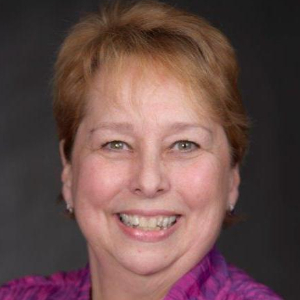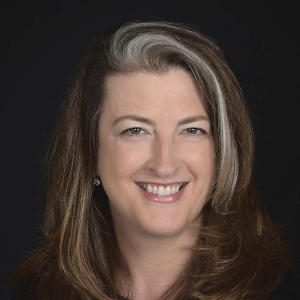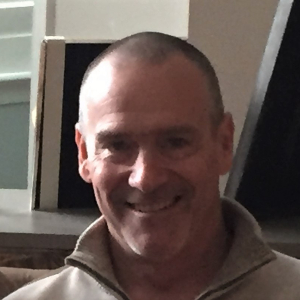Objectives
At the end of this series of podcasts, the participant should be able to:
· Discuss the functions and activities of key internal partners
· Identify potential areas for compliant collaboration by MSLs with key internal partners

MODERATOR: Kathryn Gann

SPEAKER: Deborah Crawford

SPEAKER: Stephen Camper, PhD
Following is an automated transcription provided by otter.ai. Please excuse inaccuracies.
Kathryn Gann
Welcome to the Medical Affairs Professional Society MSL fields medical focus area working groups podcast series, entitled “Field Medical Stakeholders: Partnering for Today and Tomorrow.” In this third podcast we will discuss Medical Affairs. I’m Katherine Gann. I’m a member of the MAPS MSL field medical focus area working group and I’ll be the moderator for this podcast. Currently, I’m an independent consultant in Medical Affairs, having spent my 30-year career as an MSL and MSL manager and an MSL trainer. Our legal disclaimer is as follows. The views expressed in this recording are those of the individuals and do not necessarily reflect on the opinions of MAPS, where the companies with which they are affiliated. This presentation is for informational purposes only, and is not intended as legal or regulatory advice. We encourage you to engage in conversations about partnering with field medical stakeholders with other MAPS members via the community portal on the MAPS website. Simply log in with the email address and password associated with your map account. Click on the discussion tab. Then scroll down to field medical to post a question where we view previous postings. The objective for this series of podcasts are that at the end of this series, the participant will be able to one discuss the functions and activities of key internal stakeholders and to identify potential areas for compliant collaboration by MSL with key internal stakeholders. I’d like to thank today’s panelists for sharing your subject matter expertise with a MAPS membership. speaking today are Deborah Crawford, Director of MSL team Teva Pharmaceuticals. Deb will be our interviewer. And Steven Camper, Vice President of Medical Affairs Blue Earth Diagnostics. He is our interviewee. Deb as I turn this over to you, could you please briefly provide some information about your current position and your industry experience?
Deborah Crawford
Thanks, Kathy. And thanks to MAPS for the opportunity to participate in this podcast. Currently, I am the director for the headache MSL team at Teva, and over my career, I’ve held several positions, some in management as a field MSL in field health outcomes, as well as in training and development. But now what I’d really like to do is shift to Steve. Please tell us about your current position with Blue Earth Diagnostics.
Stephen Camper
Hi, Deb, it’s great to talk to you, Kathy, great to talk to you as well. We go way back and it’s great to be able to, to share some of our stories. As Kathy said, I’m Vice President of Medical Affairs at Blue Earth Diagnostics. We are a radiopharmaceutical company marketing and manufacturing, developing radiopharmaceuticals in the oncology space.
Deborah Crawford
And at your company, Steve, how his Medical Affairs structured? And within that, what is your specific role?
Stephen Camper
As I thought about answering the question as far as our structure, I thought it might be helpful to go from both a structural and a functional perspective. Structurally, our Medical Affairs department is fairly standard, I think in terms of what the industry is like, we’ve got an internal team. And that team is responsible for management operations, strategy development. We also have an external team, our medical science liaison team, where it differs a little bit structurally is we actually have two teams and they they aren’t both MSL one is that more traditional MSL group that you might think about having thought leaders, so on and so forth. The other is more of a training and education group. Because we are in the medical imaging business, there’s a lot of training that needs to go on. And so we have a group that also handles that responsibility. From a functional standpoint, I think we’re fairly standard with that as well. But there are a couple exceptions. We have responsibility for as I said earlier, medical strategy development and execution, certain data generation and dissemination. We’re the company’s external customer, medical scientific interface, we we handle the investigator initiated study program. Those are all fairly standard I think with within the industry where we differ perhaps a little bit is our team also has a fairly extensive relationship and working, working responsibility with our clinical development and operations group. We also have a key component within Medical Affairs as well as a medical information and pharmacovigilance function, in my experience, especially the pharmacovigilance function, and to an extent medical information are our functions that aren’t necessarily always involved, or underneath of Medical Affairs.
Deborah Crawford
Thanks, Steve. And just a little bit more specifically about your role there as vice president.
Stephen Camper
Okay, well, my role is to oversee general oversight of all of those functions that I just mentioned, including our budget. And, but but we are a small, we’re a relatively small company. And as a result of that, there’s a little bit of Chief cook and bottle washer and roll your sleeves up and whatnot, which I personally, really enjoy. Not just having a medical and administrative role, I stay, I keep it involvement with our medical strategy development, as well as overseeing any of the HEOR work that we do.
Deborah Crawford
And you really intrigued me with talking about your field, medical, and really how the MSL function in your company, not only as a traditional, but that you do have a group taking on a really unique role relative to training and educating. So can you just tell me a little bit more about those two differences? And really, how did they fit into Medical Affairs within your organization?
Stephen Camper
Both field medical teams, I think are just sort of critical functions both in our company both internally as well as externally. The external, as I said, I think is fairly straightforward. The the MSL team has their traditional or more traditional thought leaders, that more academic research oriented individuals that they that they work with, and have a responsibility for. But they also have the clinical expert that, that they work with, and have responsibility for them, as well. So they are a little bit multi multifunctional in that regard. Our molecular imaging specialists, which is the second group that I mentioned, as I said, being an imaging company, of course, you know, reading images, actually acquiring the images, understanding the images, there’s a little bit of art to that, as well as clients. And so that’s a lot of their role. Not all of it, but a lot of their role is making sure that clinicians, medical images that are using our product, understand the image, image acquisition process, understand the interpretation of those images, and can feel comfortable with report writing, so on and so forth.
Deborah Crawford
And you talked a little bit just briefly about your internal customers. So can you tell me just a little bit more about the ways that you support and collaborate those internal customers who they are? And what are maybe some of the projects that you’ve collaborated on?
Stephen Camper
I think Medical Affairs in general, in in the farm end device industries, probably interact with as many if not more internal customers than any individual department. In the business. I can without numbering them, I can think of probably five or six internal customers that that we have, of course, they’re the sales, sales and marketing folks, as I said, are, we look at our field teams as being part of our, the delivers of our medical strategy, if you will, and in fact, they’re also part of development of it, because the information that they bring in is is certainly critical to the development of those strategies. So it’s a little bit of execution and a little bit of development as well from in working with marketing partners, in that regard. I’ve already talked about the clinical development and operations folks. And certainly, we’re not trying in our company anyway. We’re not trying to have our field medical team take the place of our CRA s or study monitors. But what we have found is in many of our clinical trials, the investigators are also thought leaders and they have relationships established with with those folks. And so that interaction certainly helps from the standpoint of keeping the study Top of Mind from an internal standpoint, they’ll they’ll bring information back if they’re if there are issues that a site is having. Or if they’re even good things that you know their successes that can be shared. So they’ll communicate with our clinical development and clinical operations, folks. From a market access perspective, I think most of us are aware of the role that field medical plays in that being partners talking about, or being able to describe our clinical and perhaps economic data, to consumer market access partners. Those are all fairly standard, I think, where it might be a little bit different is we also interact with our regulatory folks. And again, a lot of that is informing our regulatory team on what’s going on out in the real world, so to speak. And lastly, we also have an involvement with our patient advocacy,partners in house. And sort of, we operate as the external, external arm for them, if you will, as many that may be listening right now are maybe early in their careers. And I know you’ve held many positions throughout your career, how have those positions led you to your current role? I really wish I could sit here and say that I had a master plan, and followed that master plan to be where I am now. But But honestly, that that really was wasn’t the case. First, I did have a career prior to moving into industry. And that was a provision of health care working with patients and and that certainly helped me to have perspective as I came into the industry. But you’re right. In my career, I started out as an MSL, I’ve had field medical management responsibilities, I’ve came in house to have more training and operational responsibilities. I’ve spent some time and actually my favorite time is, is doing health economics and outcomes research work, both from a scientific and a strategic perspective. And then Medical Affairs management. I guess in a nutshell, to answer your question, anyone who’s looking to move into that sort of thing into Medical Affairs management, I would really, really strongly recommend that they try to get exposed to as many aspects of the Medical Affairs function as as possible. You know, there’s there’s much more to Medical Affairs than just field medical. But at the same time, having a field medical background, I think gives you a really unique perspective that you can bring to Medical Affairs. So I would say, try to get as much experience as you can, in as many different roles as you can. And I sort of let things go as they would go from that, from that point on.
Deborah Crawford
And actually perfect segue into my final question, because you just really mentioned and talked about, you know, getting exposure and experience, all across Medical Affairs. And earlier, you had just mentioned the importance of the MSL role in being deliverers of medical strategy, which I think is a great way to think about it. But just knowing that you really have a keen understanding of the MSL role, how do you feel that MSL can really best interact within Medical Affairs in any best practices to share around that.
Stephen Camper
If I could, I would like to turn it just a little bit. And maybe a recommendation. And this is the one thing that has throughout my career has, it seems like it always comes back to this and it’s just always in the forefront. And that is what I encourage any anybody on a field medical team to do is to continually think about and ask yourself, what value you’re bringing to the organization, and any of those internal partners that that we talked about a little bit earlier. And I just strongly encourage every field medical person to think about that, as they, as they map out what they do each day as they think about the interactions that they have, what value am I bringing to the company with what I’m doing or with what information I’m bringing in? And probably the biggest part of that, or at least a key component of that is to not look at it from your perspective, the field medical person’s perspective. Look at it from your internal customers, customers perspective. How do you think they’re viewing what you’re bringing? Obviously, we have we can’t be evaluated with from a financial perspective and what we’re doing from that regard. But we can be evaluated from a value add perspective. And that would be my my biggest take home message of this conversation,
Deborah Crawford
Great thoughts to end on. And, you know, just continue thinking about just every day, you know, what you are doing out there, and how that really impacts both internally and externally, everything that happens, because it’s, it’s a lot that we don’t even really process on a regular basis. So I think that’s, it’s great insight. So thank you very much. See.
Stephen Camper
It was absolutely My pleasure, and great to talk with you.
Kathryn Gann
Sorry to interrupt you, Steve. I was just going to echo Deb, thank you. And Deb, thank you also for participating today. I think that in light of our learning objectives, you’ve really helped our audience have a better understanding of the role and function of Medical Affairs and how the MSL is contribute to and utilize the medical strategy, and then also how they can compliantly interact with some of their key internal stakeholders. Certainly, Steve talking about his career, and his advice about how to build a career has been quite useful also. So thank you for that.This has been the third podcast in the series on the topic of field medical stakeholders Partnering for today and tomorrow. If you are a MAPS member, thank you for supporting MAPS. If you’re not yet a MAPS member and would like access to additional resources in this area, please visit the MAPS website to explore joining that website is Medical Affairs.org forward slash membership. This concludes the podcast






